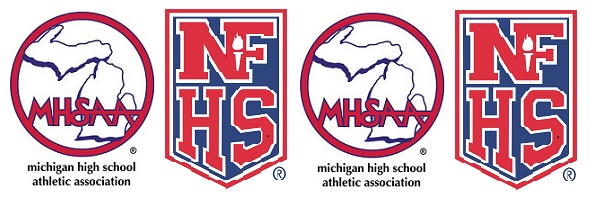
NFHS Voice: Multi-Sport Paves QB's Way
February 10, 2020
By Karissa Niehoff
NFHS Executive Director
On football’s grandest stage earlier this month, its latest star attraction not only delivered another virtuoso performance but demonstrated the best career path to success.
In leading the Kansas City Chiefs to victory in Super Bowl LIV, quarterback Patrick Mahomes brought to an end another tremendous year of football at all levels and became the latest – and perhaps best – example of the benefits of playing multiple sports during high school.
In the week prior to the Super Bowl, Mahomes talked about his ascension to the top of the football world. Despite the opportunity to focus solely on baseball as his father had done, Mahomes rejected sport specialization. Instead, he spoke about how playing multiple sports in high school paved the way for his success.
The top performer on the grandest stage of the sport, Mahomes made it to the top of the football mountain by NOT playing football year-round. Had he chosen to specialize in one sport during his high school days in east Texas, Mahomes might never had made it to NFL since, as he noted in the week prior to the Super Bowl, he was “a baseball player that was playing football.”
Mahomes believes the skills he learned as a shortstop in baseball and as a point guard in basketball helped him more as a quarterback on the football field than if he had chosen to devote his entire energies to football.
His uncanny ability to throw passes from various angles unlike any of today’s perfect-form pocket quarterbacks? He gained those skills on the baseball field. His ability to throw lasers to his intended receivers without looking? He learned those skills on the basketball court at Whitehouse High School in Texas.
His trek to the top of the football world supports our belief that playing multiple sports within the education-based structure – as opposed to a single-sport focus in a non-school program – is the best route to future success.
Mahomes experienced the benefits of playing multiple sports – better leadership and teamwork skills from cross-training, reduced risk of burnout in one sport, a variety of experiences from involvement with different sports and teams, reduced risk of overuse injuries in one sport and exposure to a variety of coaching styles.
Many parents believe that in order for their son or daughter to earn a college scholarship and eventually play at the professional level, they have to specialize in one sport year-round. This pattern has led to the proliferation of non-school programs and coaches, many of which stray from the education-based focus of high school sports.
While there are a few who achieve elite status in a sport, the majority of people who participate do not. We believe the multiple-sport path demonstrated by Mahomes is the best route to attaining athletic success and lifelong enjoyment of sports.
Dr. Karissa L. Niehoff is in her second year as executive director of the National Federation of State High School Associations (NFHS) in Indianapolis, Indiana. She is the first female to head the national leadership organization for high school athletics and performing arts activities and the sixth full-time executive director of the NFHS, which celebrated its 100th year of service during the 2018-19 school year. She previously was executive director of the Connecticut Association of Schools-Connecticut Interscholastic Athletic Conference for seven years.

Dear Mom and Dad: Cool It
January 9, 2019


By Karissa Niehoff, NFHS Executive Director
and Mark Uyl, MHSAA Executive Director
If you are the mother or father of a high school athlete here in Michigan, this message is primarily for you.
When you attend an athletic event that involves your son or daughter, cheer to your heart’s content, enjoy the camaraderie that high school sports offer and have fun. But when it comes to verbally criticizing game officials or coaches, cool it.
Make no mistake about it. Your passion is admired, and your support of the hometown team is needed. But so is your self-control. Yelling, screaming and berating the officials humiliates your child, annoys those sitting around you, embarrasses your child’s school and is the primary reason Michigan has an alarming shortage of high school officials.
It’s true. According to a recent survey by the National Association of Sports Officials, more than 75 percent of all high school officials say “adult behavior” is the primary reason they quit. And 80 percent of all young officials hang up their stripes after just two years of whistle blowing. Why? They don’t need your abuse.
Plus, there’s a ripple effect. There are more officials over 60 than under 30 in many areas. And as older, experienced officials retire, there aren’t enough younger ones to replace them. If there are no officials, there are no games. The shortage of registered high school officials is severe enough in some areas that athletic events are being postponed or cancelled—especially at the freshman and junior varsity levels.
Research confirms that participation in high school sports and activities instills a sense of pride in school and community, teaches lifelong lessons like the value of teamwork and self-discipline and facilitates the physical and emotional development of those who participate. So, if the games go away because there aren’t enough men and women to officiate them, the loss will be infinitely greater than just an “L” on the scoreboard. It will be putting a dent in your community’s future.
If you would like to be a part of the solution to the shortage of high school officials, you can sign up to become an MHSAA-registered official at MHSAA.com. Otherwise, adult role models at high school athletic events here in Michigan are always welcome.
The Michigan High School Athletic Association (MHSAA) is one of 51 members of the National Federation of State High School Associations (NFHS).

